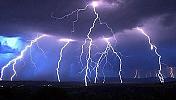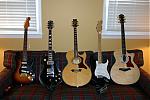Pike likes to court the line schools too.They had a big bbq out here in Cali,and told all the NLC kids they would hire them the day they graduated. So you got all these kids who paid 10 grand or so to go to this class and they need to pay off the loan. It's like shooting fish in a barrel!!! They have big heads cuz they think after 6 weeks they know it all and some outfit is telling them they will give 'em a job right away,,,, if the egos were dollars , the recession would be over!
Back in Houston I ran into a kid (really , about 23 yrs old) he worked for Pike for 4 yrs he told me, two as a grunt, and on Ike they made him foreman! Is that how they do it? That's f ing stupid, either he was lying or pikes just throwing him under the bus! There's NO WAY IN HELL he's got enuff knowledge to be telling guys what to in that kind of situation!! E.S.
Results 11 to 20 of 61
Thread: Raw meat.
-
11-24-2009, 10:27 PM #11
 hey edge
Featured Sponsor
hey edge
Featured SponsorRight on brother !!! The thing is, it's not only Pike that's pushing these kids through too fast. The utilities are doing it too. Our company is paying these kids' tuition to put them through school so they will come work for us. Wait till these kids put enough time in so they don't have to pay the money back. IF their smart, and still alive, they'll be flying the coupe and headed for greener pastures. This place will look like a ghost town. They just don't get it.

-
11-24-2009, 10:58 PM #12

-
11-25-2009, 12:42 AM #13
 Member
Member
- Join Date
- Mar 2009
- Posts
- 14

If your in their "click" you can be a GENERAL FOREMAN in 7 years or less.
-
11-25-2009, 08:29 AM #14
 egos
egos
Your right about the egos. Here you're a young kid that didn't want to or couldn't go to college. You have a company standing at the door when you graduate saying, "congratulations, you're a journeyman, heres how much $ you stand to make this year !!!". "Come to work for us and you'll have your schooling paid off in no time". Then you got the kids standing there telling themselves " Wow, that was easy". They have NO idea !!! We have a few really good kids that do come out of that school and most of the slackers are weeded out pretty early. The problem is, the good ones will leave if they are smart !!!
-
11-25-2009, 12:09 PM #15

Koga took a short jab at it by bringin up the fu(ksqueeze a few posts back... another thing that pisses me off is they get these kids right outa school the kids are "trained" so now we rubber them up give them a squeeze and call them safe... so now they are trained AND safe...
sorry big fuggin difference between trained and safe... and QUALIFIED... to to linework...
especially at the JOURNEYMAN level...
for what it's worth...
Edge
-
11-25-2009, 03:03 PM #16
-
11-26-2009, 03:53 AM #17
 Senior Member
Senior Member
- Join Date
- Mar 2006
- Posts
- 687
 Are Electrical Workers Required to Be Qualified?
Are Electrical Workers Required to Be Qualified?
It should piss us all off Edge!
The fact is that anyone performing electrical work is required to be qualified for the work being performed, according to OSHA CFR 1910 subpart S and the NFPA standards. For example, an operator or welder would be required to be qualified for electrical work that is germane to his or her job. An electrician would require more extensive and intense training because the electrical work or exposure would be much broader than the operator/welder would need. A line worker requires training particular to OSHA 1910.269.
Most of us specialize in the industry, some electricians only do house work, some only do linework, some lineman only do OH some only UG and never go up in a bucket, substations are another matter altogether.
Everyday, in many ways, I learn from trades folk with nothing more than a GED. I’ve carried the tools and still do, have maintained my qualifications OH, UG T&D and let me tell you I know some illiterate line folk who are brilliant line mechanics. No, Edge I ain’t on a high horse just stating my qualifications, Sometimes it’s about, respect, keeping my mouth shut and ears open.
I started in the electrical industry as and apprentice electrician in 1979 nearly a decade after OSHA regulations were written as a law. At that time, in the 70's when OSHA was established it was a dangerous work environment and no one tracked the accidents or fatalities that were associated with electrical work. It was just assumed electricity was dangerous and to stay away from it. Since those days I, obtained my Journeyman’s and Professional engineering licensure. I have also obtained a Bachelors and Masters in Electrical Engineering and spent the last twenty-one years in the utility industry.
Electrical safety can be accomplished and not diminish production. Fall protection doesn't diminish production as much as we hate the buck squeeze, The fact of the matter is, safety has proven to increase production because it not only prevents falls, shock and fire hazards but also decreases lost time and production which is largely due to improper work methods, and deviation from construction standards and codes.
The real question is not if the electrical worker is required to be qualified but what are the qualifications requirements. OSHA and NFPA have given interpretations/information of the requirements for training and qualified worker status.
OSHA interpretations basically say that the qualified worker must be trained and demonstrate the ability to apply CFR 1910.subpart S for below 600 volt applications and 1910.269 for above 600 volt applications. This does require that the employer document the employee's abilities, including outside contract work.
The OSHA standards are law and written as such. To fully understand the OSHA regulations the worker must understand the premise by which the law was written. The worker must understand the intent of specific applications of the regulation and how they apply in real world applications. The primary premise for the OSHA electrical standards is based on the NFPA standards. The NFPA standards are consensus standards and are based on real world applications.
Electrical work is performed under a variety of job titles. The objective of the standards (OSHA and NFPA) is to make sure that the worker is familiar with the operation, construction, hazards, and trained germane to the work being performed. All qualified electrical worker training must include understanding and awareness of potential shock, fire, arc flashes and understand potential circuitry hazards.
The electrical worker must be competent in his or her ability to the proper use of PPE. The worker must be able to identify and control potential hazards. This will require that the worker has extensive knowledge of circuitry, wiring methods, grounding, overcurrent protection, energizing, de- energizing of equipment and the proper precautionary measures as described in OSHA 1910.Subpart S and 269.
A welder, for example, would need to be trained only on the systems that he or she would be working. However, the wireman, lineman, electrical technician, instrument mechanic, and the E/I mechanic would need extensive training in electrical principles and application to provide a safe environment.Electrical safety is intense and requires more than just general safety requirements. It should not be taught or applied by someone who does not understand the proper application of these standards. Proper application only comes through education and experience.
The requirements for each job are found in the OSHA standards. Several interpretations have been issued by OSHA concerning training requirements for electrical workers. OSHA requirements deal with above 600 Volts and below 600 Volts. The electrical worker training must be germane to the voltage and application he or she will be working on or near.Last edited by CPOPE; 11-26-2009 at 04:09 AM.
-

CPOPE, does NFPA, specifically 70e, apply to employees of Utility companies?
"It is not the critic who counts:The credit belongs to the man who is actually in the arena" Teddy Roosevelt
-
11-26-2009, 04:11 PM #19
 Senior Member
Senior Member
- Join Date
- Mar 2006
- Posts
- 687
 yes and no
yes and no
Follow the link to some discussions on the topic. People all over the industry are arguing about the question you ask and I am not the most knowledgeable on topic. From what I know there were proposals last NFPA code cycle to drop the utility exemption. It's up in the air. A arc flash calculation is now required by NESC. The hazard of working for a long duration in a 30/40cal suit makes the whole concept impractical. The PPE makes the job more dangerous than the arc flash risk. Problem is explaining to a jury why utilities are exempt from the PPE requirements that are mandatory when not "under direct control of the utility"
http://www.arcflashforum.com/showthread.php?t=24
http://www.incident-prevention.com/c...an-to-you.html
So let me try to give an example of the dichotomy, an electrician, {high voltage OH/UG qualified lineman} working as private contractor is working at the 600v main disconnect of a building. The fault duty is high and by nfpa 70E hazard risk assessment requires a 30cal arc flash suit in order for him/her to open the service disconnect cabinet.
A utility meter worker, not HV qualified, comes along and, exchanges the 400a self contained meter. Shouldn't both the qualified electrician and trained meter worker require the same PPE on similar tasks?
Sorry to answer a question with a question but like I said people all over the industry are arguing. Work it dead and there is not arc flash hazard. This is a foundation written into 70E
it's not just 70E you have to be concerned with. As far as arc flash goes five separate industry standards have been established that deal with the prevention of arc-flash incidents:
• National Electrical Safety Code The 2007 National Electrical Saftey Code's (NESC) new rule 410A3, states, "Effective January 1, 2009, the employer shall ensure that an assessment is performed to determine potential exposure to an electric arc for employees who work on or near energized parts or equipment."
• Institute of Electrical and Electronics Engineers (IEEE), Standard 1584, Guide for Performing Arc Flash Hazard Calculations
• Occupational Safety and Health Administration (OSHA), 29 Code of Federal Regulations (CFR) Part 1910, Subpart S
• National Fire Protection Association (NFPA) Standard 70, National Electrical Code
• NFPA 70E, Standard for Electrical Safety in the WorkplaceLast edited by CPOPE; 11-27-2009 at 05:11 AM.
-
11-27-2009, 06:45 AM #20
 The reason
Featured Sponsorr
The reason
Featured SponsorrI thought it worth more attention. This school in the video link says after 32 weeks of this school one can ready for " full scale line worker". If a kid comming out of this school thinks hes ready to jump on hot primary after that he is a DAMN FOOL ! He might have a good understanding of some of the basics. But they have no real experience in the day to day application. No experience in what can go wrong in a split second and how to handle it.No experience in workin under the pressure of no sleep in the worst conditions and makin the right decisions.How many jobs do you go on with class room conditions. The last one killed posted on here was an ape with 2 years and he was up a pole by his self doin somethin as simple as installing animal guards. The closest guys to him were 200 ft away workin another pole ? Whats wrong with that picture ???? According to all the post about Pike, they have no problem puttin guys with very little real experience in the bucket. They can talk all they want. The attitude of 32 weeks of school and he's a lineman will get one killed real fast. You get my point ?
Koga



 Reply With Quote
Reply With Quote




